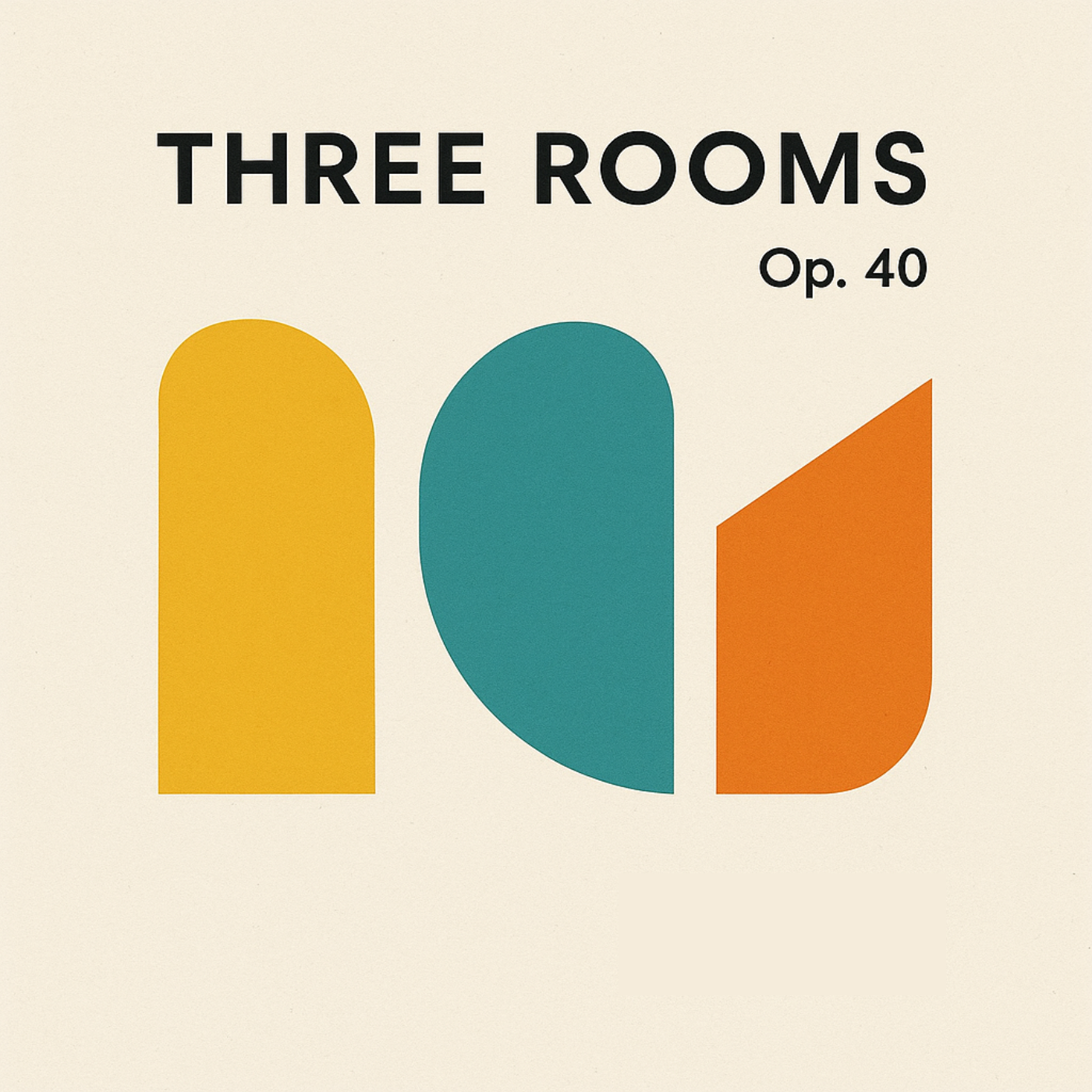
Three Rooms
I. FastProgram note
I vividly remember the first time I heard a piece by Steve Reich. It must have been not long after the release of Pulse. That was the piece—and from that moment on, I was captivated. His music consumed me. There were times where I listened to nothing else. The hypnotic rhythms, subtly shifting textures, rich harmonic landscapes, and inventive use of repetition—all of it left a deep and lasting impression on me.
Since then, I’ve explored every corner of Reich’s catalogue, including many of his lesser-known works. He is, without question, one of the most influential composers of the 20th and 21st centuries. His innovations in minimalism, phasing, and process-based composition reshaped the language of contemporary music. For me personally, he has been a defining influence—both in how I hear music and how I write it.
Over the years, I’ve written many pieces under the spell of his sound. But just as I did with Philip Glass and The Last Figure, I now feel it’s time to say goodbye to this particular mode of expression and begin charting a new path.
Three Rooms is my final tribute to the endlessly fascinating and rhythmically alive style of Steve Reich. While I know his influence will continue to inform my work in subtle ways, this piece marks the end of an era for me.
The work is structured in three movements. The “rooms” don’t refer to anything specific—they’re more of an open metaphor, a space for the listener’s imagination. The title itself came about casually: I asked my sister what she thought a good name for a three-part piece might be, and she simply replied, “Three Rooms.” It stuck.
The piece is scored primarily for strings, winds, and percussion, with brass entering occasionally for color and emphasis. Writing in Reich’s style for a full orchestra proved far more demanding than I anticipated. The first movement came together naturally, but the remaining two were much more elusive. At times, I considered abandoning the project altogether—it had been a while since I last composed in this idiom, and reconnecting with it was more difficult than I expected.
But I’m grateful I stayed with it. Three Rooms is both a farewell and a celebration—a final exploration of a musical language that has shaped me deeply. Whatever comes next, this piece stands as a heartfelt thank-you to one of the greats.